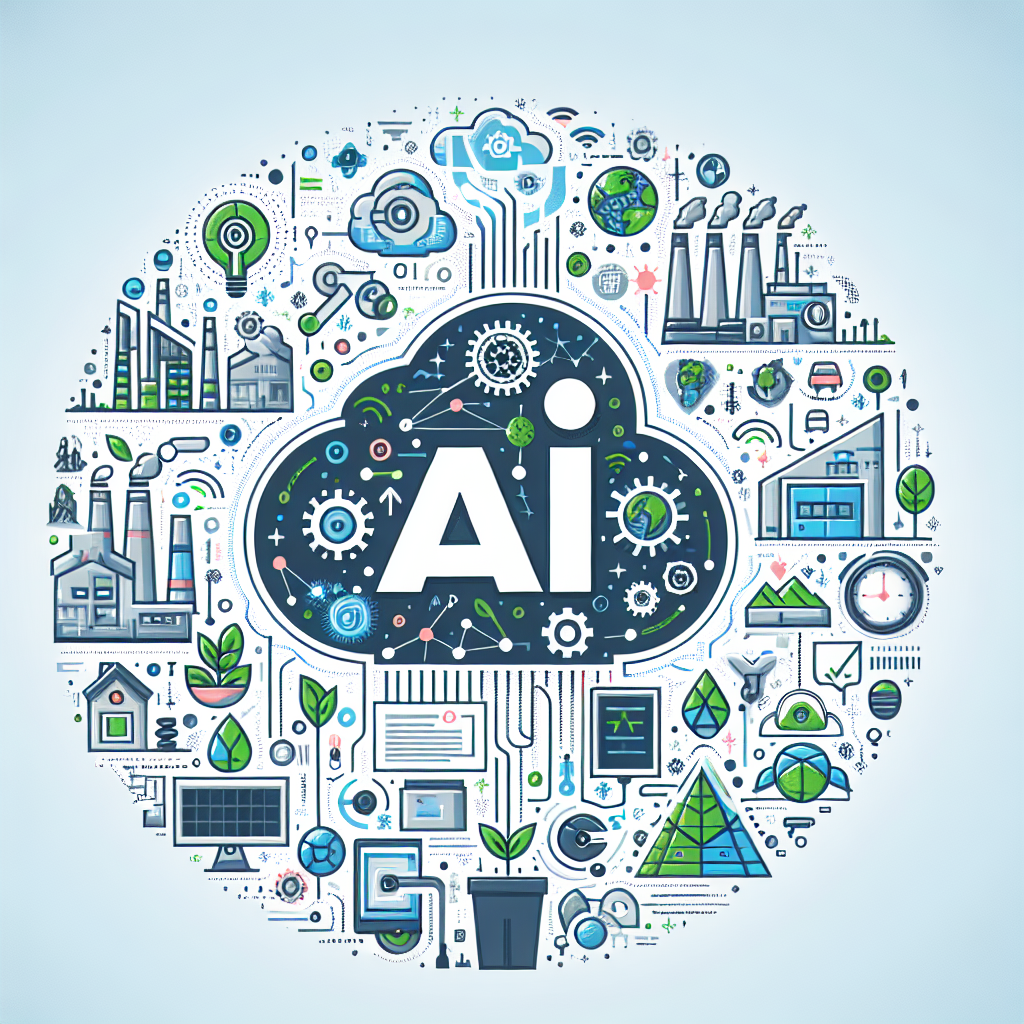Recently, the rise of artificial intelligence (AI) has signified a crucial shift in many industries. By harnessing the strengths of machine learning, data analytics, and automation, AI can tackle intricate problems, enhance operational efficiency, and promote sustainable practices. As global challenges like climate change, resource scarcity, and social inequalities become more pressing, AI-driven innovations are leading us toward a more sustainable future across diverse sectors.
1. Agriculture: Precision Farming
AI technologies are transforming agriculture through precision farming techniques. Utilizing drones, sensors, and machine learning algorithms, farmers can gather real-time insights on soil conditions, weather trends, and crop health. This data-driven strategy enables optimized usage of water, fertilizers, and pesticides, significantly diminishing waste and environmental impact. For instance, predictive analytics assist farmers in pinpointing the best times for planting and harvesting, improving both yield and sustainability.
2. Energy: Smart Grids and Renewable Sources
The energy sector is undergoing a revolution thanks to AI. Smart grids powered by AI can enhance energy distribution, anticipate demand changes, and integrate renewable energy sources more efficiently. AI algorithms are instrumental in managing energy storage systems, balancing supply and demand while decreasing dependency on fossil fuels. Innovations such as predictive maintenance for wind turbines and solar panels ensure optimum performance and durability, facilitating a transition to sustainable energy generation.
3. Transportation: Autonomous Vehicles and Efficient Logistics
AI is significantly influencing the transportation sector, especially in the development of autonomous vehicles and optimizing logistics. Self-driving cars are expected to lower traffic accidents and alleviate congestion, while AI-enhanced traffic systems can improve urban mobility by optimizing traffic flow and cutting emissions. In logistics, AI algorithms streamline supply chain processes, reducing waste and ensuring more efficient resource utilization, which not only lowers costs but also helps companies decrease their carbon footprints.
4. Manufacturing: Smart Factories
The concept of Industry 4.0 emphasizes AI’s role in manufacturing, where smart factories deploy connected devices and AI-driven analytics to boost production efficiency. These technologies facilitate predictive maintenance, quality control, and comprehensive supply chain management, minimizing waste and optimizing resource use. By refining production processes, companies can lower energy consumption and lessen the environmental impact of manufacturing activities.
5. Waste Management: Recycling and Resource Recovery
AI is addressing the global waste challenge with innovative waste management strategies. Machine learning algorithms can enhance recycling by accurately identifying and sorting materials. AI systems can also analyze waste trends and optimize collection routes, ensuring efficient processing of recyclables. Moreover, predictive modeling aids in designing products with end-of-life considerations, fostering circular economy practices that minimize waste and bolster sustainability.
6. Climate Science: Data-Driven Solutions
AI’s capacity to analyze extensive datasets is invaluable in climate science, enabling researchers to model climate change scenarios and evaluate potential effects on ecosystems and human populations. AI can refine climate models, enhance weather forecasts, and pinpoint effective mitigation strategies. Additionally, AI tools can support carbon footprint monitoring, empowering individuals and organizations to make informed choices that lessen their environmental effects.
7. Healthcare: Sustainable Practices and Improved Outcomes
The healthcare sector is also benefiting from AI as it develops more sustainable practices. AI-driven analytics optimize resource distribution in hospitals, decrease energy use, and streamline supply chains for medical supplies. Furthermore, predictive algorithms can uncover public health trends, enabling preemptive actions against disease outbreaks and strengthening community resilience.
Conclusion
AI-enabled innovations hold the promise to reshape industries by fostering sustainable practices that tackle some of the most significant challenges our world faces today. While the advantages of AI are immense, it is crucial to address these advancements thoughtfully, keeping ethical considerations in mind. As society continues to explore AI’s potentials, embracing this technology can unlock creative solutions that not only advance industries but also contribute to a more sustainable and just future for everyone.
By incorporating AI across various sectors, we can unlock the potential to achieve efficiencies, minimize environmental impacts, and enhance resilience in an ever-evolving world. The journey towards sustainability is intricate, but with AI as a partner, the potential is boundless.

